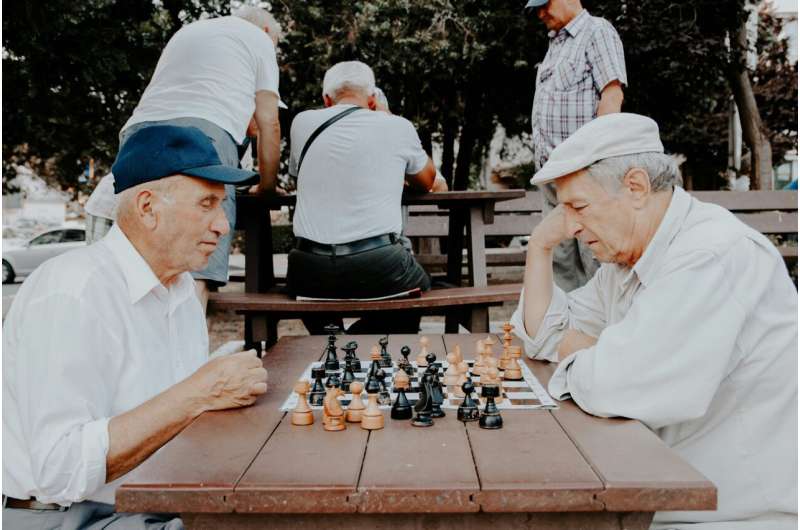This article has been reviewed according to Science X's editorial process and policies. Editors have highlighted the following attributes while ensuring the content's credibility:
fact-checked
peer-reviewed publication
trusted source
proofread
Social activities can prevent cognitive decline in care facility residents, suggests research

Social activities such as interactions with others and participation in organized events can prevent cognitive decline in long-term care facility. Research from Amsterdam UMC, carried out among 3,600 patients in 42 Dutch and Belgian care homes, shows that participation in social activities offers a protective effect for those with no, or little, cognitive impairment. These results are published in the Journal of Alzheimer's Disease.
"Cognitive decline in long-term care residents is relatively common, a Canadian study showed that almost a quarter of residents cognitively declined after a year of residency," says Hein van Hout, professor of Care for Older People at Amsterdam UMC and leader of this research project.
"So, when student Jack Pieters made a connection between reduced social activities and his grandmother's cognitive decline since her admission to a nursing home, we decided to investigate. Our study shows that this decline can be mitigated, for those in which cognitive decline has not, or only just, started, if they participate in social activities," he adds.
The study analyzed the cognitive performance of 3,600 patients more than 18,000 times, on average every six months. Care home residents were then categorized based on their level of decline. In the groups with the least cognitive decline, thus those with no or only mild cognitive impairment, social activity was shown to prevent further, or the begin of, decline. These findings were not affected by the level of physical activity, suggesting that social activity has a specific relationship with cognitive function.
"Social activity can mean a lot of things. In this study, we looked at both general activities, as well as specific social activities such as conversing, reminiscing, helping other and going on trips or even just to the shops. We saw that all of these activities offered this preventative effect," says van Hout.
A preventative effect that may have consequences for national care guidelines. "This may affect our ideas of how an optimal staff mix looks like, for example with more professionals or volunteers to help facilitate social activities. This, in turn, can lower their dependence on assistance in their daily lives which could have a knock-on effect on the societal costs of long-term care in the long run," adds van Hout.
More information: Milou J. Angevaare et al, Social Activity and Cognitive Decline in Older Residents of Long-Term Care Facilities: A Cohort Study, Journal of Alzheimer's Disease (2024). DOI: 10.3233/JAD-221053




















